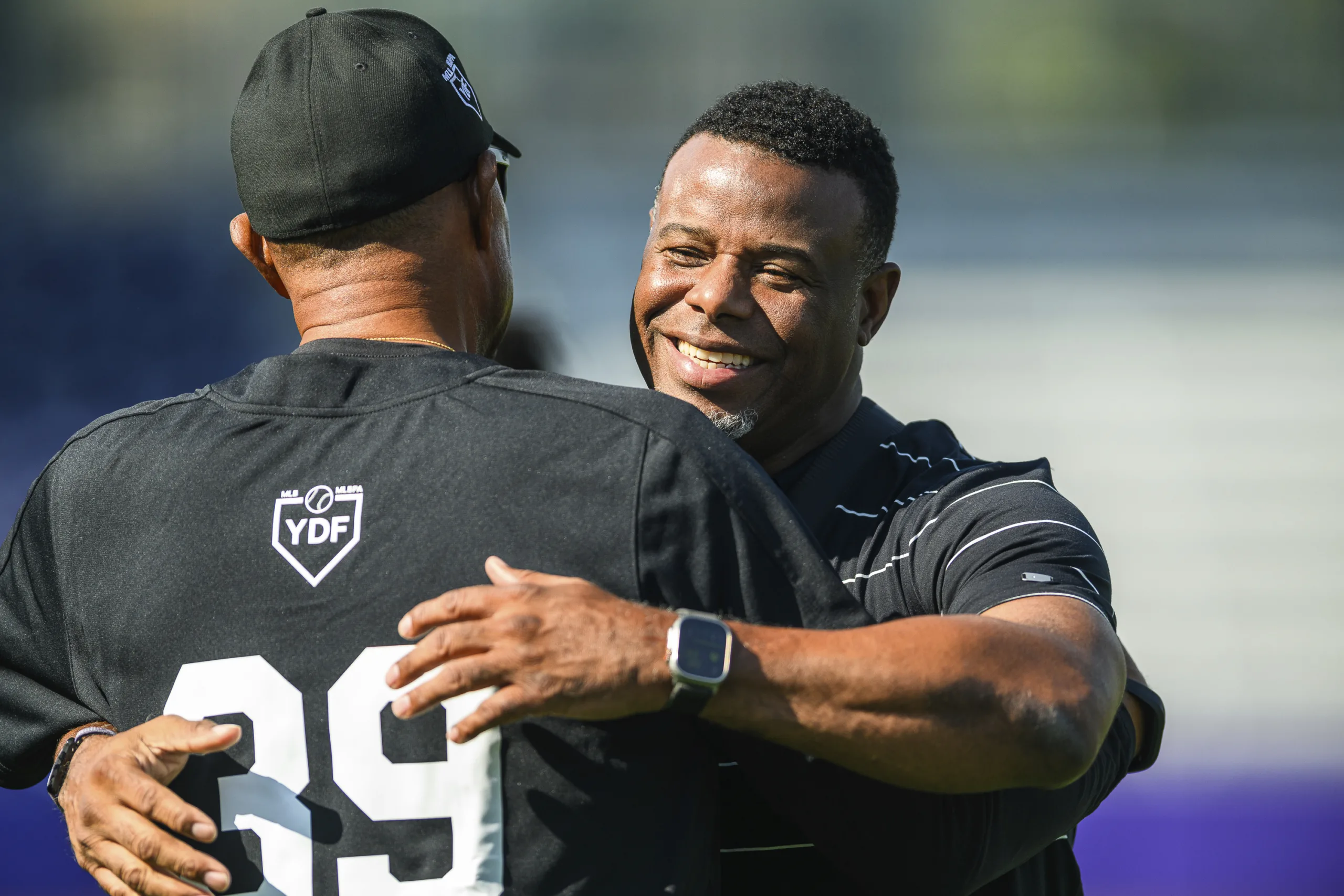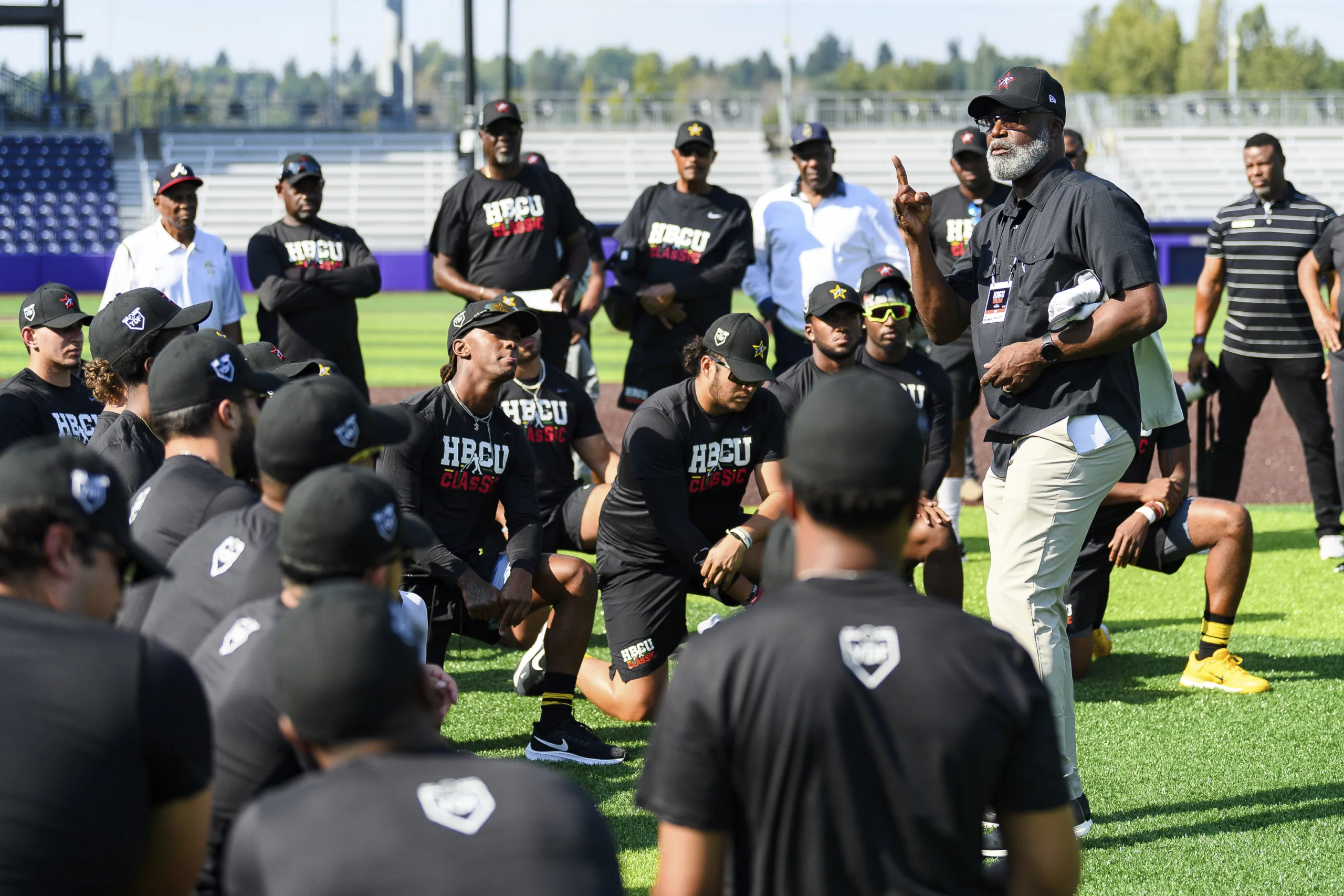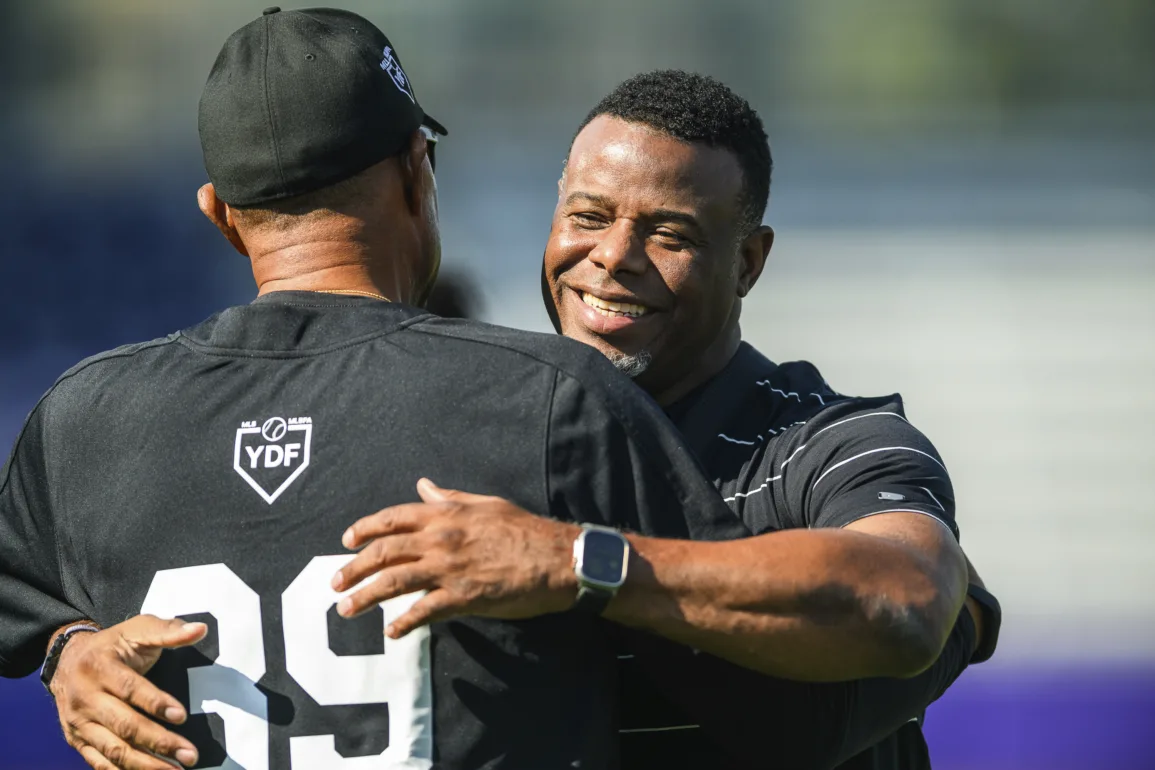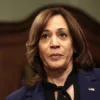SEATTLE – On a warm, humid evening, 50 college players gathered at Husky Ballpark at the University of Washington for a warmup session, They were preparing for Friday’s inaugural Swingman Classic, an all-star game featuring handpicked players from 28 Historically Black Colleges and Universities. The event is the ambitious brainchild of former baseball superstar Ken Griffey Jr. and was co-sponsored by Major League Baseball and the Players Association.
In the short term, the hope is that some of those participants will be selected in the three-day, 20-round Major League Baseball draft that begins here on Sunday. The long-term goal is that baseball will reclaim, at least partially, the hold it once had on the African American community.
The goal of the Swingman Classic is to shout out the good news of HBCU baseball, to elevate “the strength and the talent of Division I HBCU players and telling the world that HBCU baseball programs are great and strong,” said Jean Lee Batrus, executive director of the MLB-MLBPA Youth Development Foundation. Batrus said the inaugural Classic, three years in the making, is already a success. “Allowing these players to shine on this national platform during All-Star week, that’s a victory,” she said.
Friday’s game is a joint initiative to support efforts that focus on improving the caliber, effectiveness and availability of amateur baseball and softball programs across the United States and internationally.
Major League Baseball is tackling the polarizing issue of diversity, a daunting task highlighted last month when the Supreme Court struck down affirmative action, ruling that race could not be used as a consideration in college admissions.
Yet that is precisely what MLB is doing as it advocates for African Americans to be brought into the league. This is a noble gesture at a crucial flashpoint in Unites States history. While conservative political forces in the United States attempt to narrow opportunities, especially for Black Americans, baseball — guilty of its own diversity shortcomings — is pushing in the opposite direction. By sponsoring a variety of ambitious local programs, Major League Baseball is attempting to make youth baseball and softball more widely accessible.
“The great thing that we’re doing through the Youth Development Foundation is growing access and reducing barriers,” Batrus said.

Caean Couto/AP Photo
Baseball is supporting several initiatives to bring African Americans back to the game.
In 1989, former major leaguer John Young formed RBI (Reviving Baseball in Inner Cities). Two years later, Major League Baseball took over the program. In the intervening years, RBI has grown from a program aimed primarily at boys in South Central Los Angeles to an international campaign impacting more than 200 cities and 150,000 male and female participants per year. MLB and USA Baseball also host the Dream Series during MLK weekend.
Former Major Leaguer Michael Coker started the Black College World Series in 2021. MLB signed on to help support and co-sponsor the event. The Swingman Classic is baseball’s latest attempt to reestablish baseball as an important component of African American culture.
“There’s a lot of people who wanted this to happen,” Griffey said as he watched Thursday’s workout. While he was the catalyst, Griffey said he was overwhelmed by the outpouring of support from baseball executives, former players and coaches who volunteered to be part of the Swingman initiative.
“Everybody jumped on board,” he said. “We were turning down coaches who want to be part of it.”
Business leaders often explain/justify diversity initiatives by saying that diversity is good for business, but Major League Baseball is doing booming business without a substantial Black American presence. Last year, according to Forbes Baseball, MLB grossed nearly $3 billion. The game is making money. Will the presence of more American-born Black players enhance the product, or should baseball rebuild its Black American presence out of respect for the often-invoked legacy of Jackie Robinson?
Griffey is an essential part of that legacy. His father, Ken Griffey Sr., played for 18 seasons and won a pair of World Series championships with the Cincinnati Reds. Griffey Jr., with a magnetic personality and otherworldly hitting and fielding skills, pumped new life into baseball during a remarkable 22-year career. He was inducted into the Baseball Hall of Fame in 2016. The Swingman Classic, in Griffey’s view, is designed to extend the rich legacy of Black baseball he represents.
“It’s not just about me,” he said. It goes back to Jackie Robinson, Willie Mays, Hank Aaron, Willie Stargell, all the greats who came before me. All of those guys are part of me. You want the game to be better and we have an opportunity to make it better.”
Griffey pointed out that many of the HBCU players did not have the advantages he enjoyed — a father who was a Major League Baseball star, exposure to the game at an early age.
“I was able to be seen at an early age,” he said. “Not everybody is going to a Power 5 conference; not everybody’s going to be seen. Not everybody can afford to pay $60,000 a year to go to school. To be able to come out here and let these guys be seen on a national stage is important. I want this to be an exciting, fun learning experience for them.”
“It’s not just about me. It goes back to Jackie Robinson, Willie Mays, Hank Aaron, Willie Stargell, all the greats who came before me. All of those guys are part of me. You want the game to be better and we have an opportunity to make it better.”
– Ken Griffey Jr.
Griffey added that one of the things both he and Batrus have stressed to the HBCU players is to be aware of opportunities off the diamond. During their time in Seatle, the players have attended sessions about educational leadership and philanthropy. They have been introduced to baseball and corporate executives. “If you don’t get drafted you can still work in baseball, you can still be part of the game you love,” he said.
The reality is that baseball does, in fact, have a diverse talent pool with players coming from the United States, Canada, the Dominican Republic, Puerto Rico, Central America, South America, Asia and Australia.
The African American presence in baseball continues to be a perennial sore spot and, for some, an embarrassment.
American Black players made up 18% of all MLB rosters in 1991; on opening day in 2022, they composed a paltry 7.2%. During last year’s World Series, there were no African American players on either team’s roster.

Caean Couto/AP Photo
Could HBCUs become the new pipeline? Could they replace the Negro Leagues as a breeding ground for aspiring players?
There are two Division I HBCU athletic conferences: the Southwestern Athletic Conference and the Mideastern Athletic Conference. Each SWAC school has a baseball program, but only four MEAC schools sponsor baseball: Maryland-Eastern Shore, Delaware State, Norfolk State and Coppin State.
Coppin State’s Jordan Hamberg and North Carolina A&T’s Xavier Meachem are given solid chances to be drafted next week. Hamberg, a junior pitcher and outfielder, was the 2022 MEAC Pitcher of the Year. As a hitter, Hamberg’s swing has been compared to Griffey’s with power to all fields.
Not all HBCU athletic programs are on board with starting baseball teams. Howard athletic director Kery Davis said that his school will not add baseball. “We don’t have the resources to fund a baseball team,” Davis said last week during a phone interview. “Plus, we don’t have a field and we don’t have the space to expand to a field.”
When the Washington Nationals built their stadium, the team agreed with the city and Major League Baseball to fund a baseball academy. The idea was to build the academy next door to Howard’s campus in Northwest D.C. Had that happened, Howard would have funded a baseball team. In the end, the academy was built in southeast D.C.
“That ended that dream,” Davis said.
“Would I love to [build a baseball program at Howard]? Yes. I see the reasons to do it, I’d love to see it grow in the Black community, but I can’t figure out a way to make it work. Without some help, from somewhere, it just wasn’t going to work.”
Howard’s women’s softball team uses the facility in southeast D.C. for practice, but travel is a logistical nightmare. “And it’s really expensive,” Davis said.
Both Howard and MEAC rival Morgan State field women’s softball teams, but even those teams reflect a dilemma in the demographic politics of baseball. At a number of HBCU programs, African American players are in the minority. The same is often true in softball.
Morgan State’s team is predominately white, and the coach is white. Critics point out that at this point in time the talent pool of Black women softball players is not especially robust.
“It’s not a deep pool, I’ll give you credit for that,” Davis said. “But that hasn’t stopped us from fielding a team with 20-plus Black women. You can do it, but you have to want to be affirmative and you have to take a few lumps.”
Howard’s softball coach is an African American woman and only one player is white, though some are Latin. Davis said he plans to keep it like that as a way to provide opportunity for players and coaches of color.
“I insist upon that with our coaches,” he said. “We have to be who we say we are.”
The tug of war over diversity reflects a deep ongoing dilemma with racism which seeps into every corner of United States culture, including baseball. Batrus said Major League Baseball has spent $25 million across 40 states and territories to diversify the game.
The results have been mixed and the mountain baseball has to climb is steep. But Griffey’s HBCU all-star game is baseball’s way of taking a big swing at leveling the playing field.



